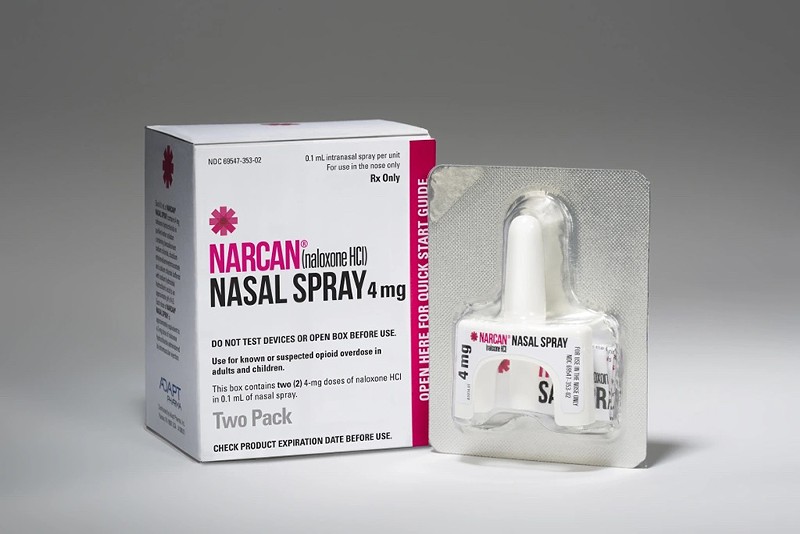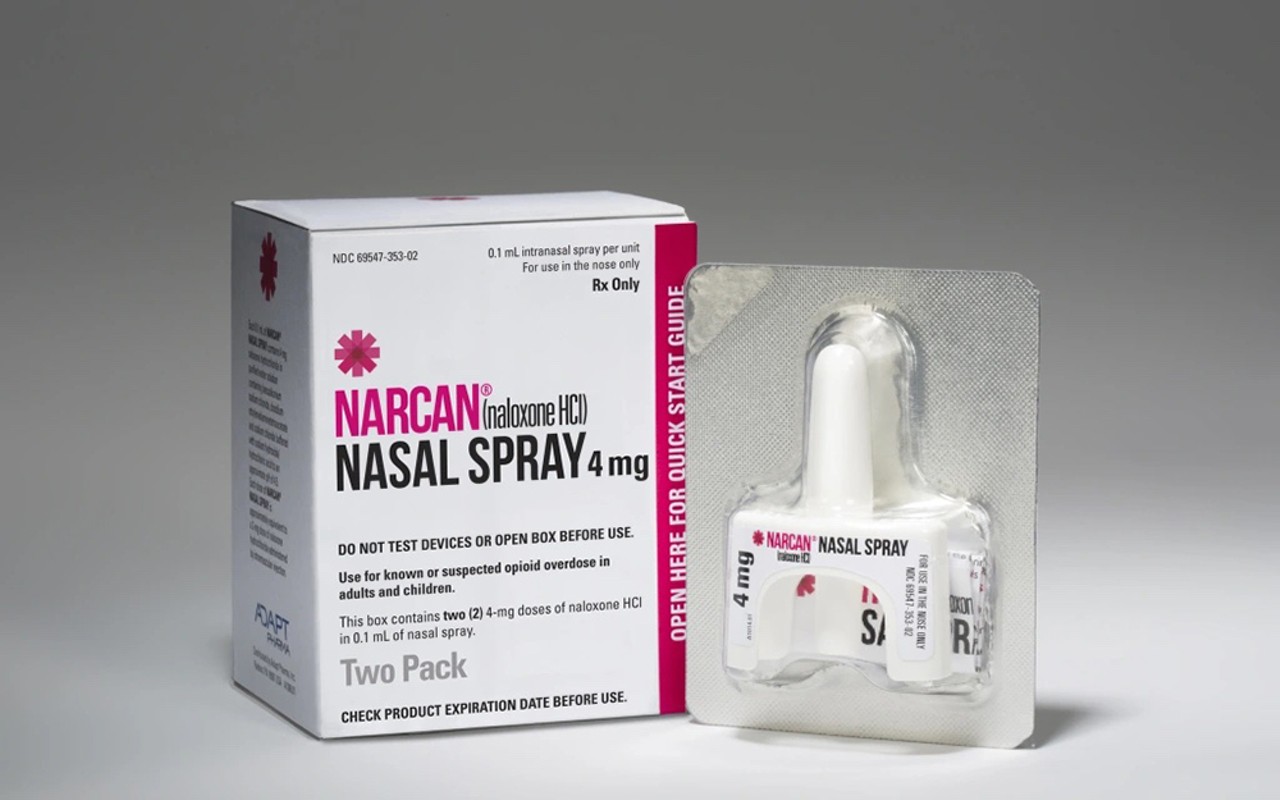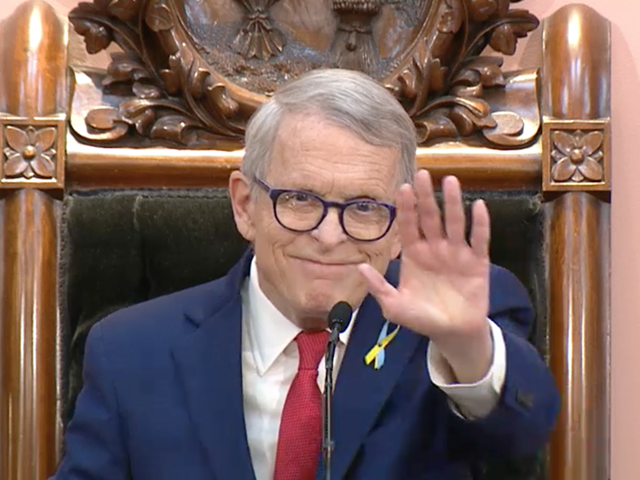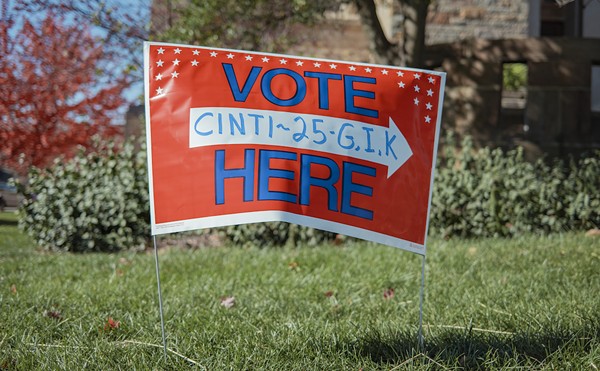
Photo: Provided by Harm Reduction Ohio
Kentucky Attorney General Daniel Cameron joined 17 other Republican attorneys general in writing a letter to the Biden administration urging the declaration of fentanyl as a weapon of mass destruction.
Those who have lost loved ones to substance use disorders say Kentucky needs changes to address the opioid crisis.
A roundtable Feb. 1, led by Attorney General and Republican gubernatorial candidate Daniel Cameron with law enforcement officials, lawmakers and Northern Kentucky residents, heard calls for changes to laws, training and education.
Panelist George Thurmond, a deputy in the Bullitt County sheriff’s office whose daughter died from fentanyl poisoning, said more robust training is needed to prepare officers and first responders when answering calls and investigating cases. Another panelist, director of the Kentucky Harm Reduction Coalition, Sheerta Waldon, said collaboration is key to approaches like harm reduction, a public health strategy focused on preventing harmful consequences like overdoses and disease transmission.
In addition to beginning recovery, those with substance-use disorders face other challenges, such as finding jobs and stable housing, she added. “We’ve done a lot of work, but we need to take a look at what we’re not doing.”
The discussion on Feb. 1 was the first of several scheduled around the state as part of Operation Fight Fentanyl, a new initiative from Cameron’s office. The panelists also heard residents from across the region tell personal stories about how opioid use has affected them.
After the discussion, Cameron told reporters that he plans to take comments he heard and use them in Frankfort.
“What I hope that these conversations will do is inform our thinking, help us figure out where the impediments are, where is there collaboration that needs to take place and move forward with a plan that attacks this from a multitude of ways,” he said.
He noted Thurmond’s call for training as well as another panelist’s work, Jim Rauh, the founder of Families Against Fentanyl, to have fentanyl declared a weapon of mass destruction.
Cameron’s office joined 17 other Republican attorneys general in writing a letter to the Biden administration urging the declaration. Cameron said in his opening remarks that his office has also been part of a coalition of Republican attorneys general who have sued the Biden administration “for some of the failed policies at the southern Border” of the United States.
During a presentation, Opioid Abatement Advisory Commission Executive Director Brian Hubbard said fentanyl is the number one cause of death of Americans ages 18-45. Kentucky’s age-adjusted rate of drug overdose deaths per 100,000 in 2020 was 49.2, or 2,083 people, he said citing the Centers for Disease Control.
The commonwealth was second to West Virginia, where there were 81.4 overdose deaths per 100,000 population, or 1,330 people. The commission Hubbard heads is overseeing the disbursement of hundreds of millions of dollars Kentucky has received through settlements with drug companies that distributed addictive prescription opioids.
Rep. Kimberly Poore Moser, R-Taylor Mill, said lawmakers have taken actions to expand resources and setting standards of care within treatment facilities. She anticipates this session of the legislature will take a strong look at mapping how systems interact with individuals with substance use disorders.
Cameron earlier this week on Twitter criticized Democratic Gov. Andy Beshear for being “consistently silent” on the Biden administration’s border policies.
“As your Governor, I won’t be silent. I will stand up and work to combat the immigration crisis that is fueling our drug crisis and straining Kentucky’s economy,” Cameron wrote. Before the panel, Cameron held a meet-and-greet in Crescent Springs.
Another candidate, former United Nations Ambassador Kelly Craft has invited Kentuckians to share their experiences with losses from addiction on her campaign website. The move comes after two TV ads from her campaigns that mention tackling drug use. In the first, Craft says she has “experienced that empty chair,” implying a family member’s struggle with substance use. In the second, Craft was filmed in front of a section of wall along the Mexican border, saying Beshear and Biden are “ignoring the border crisis” and that if she is elected as governor, she plans to secure Kentucky’s border and support law enforcement officials.
“If you’re a drug dealer, I’m coming for you,” Craft says at the close of the second ad. In an interview with Fox News Digital earlier this month, Agriculture Commissioner Ryan Quarles, too, criticized Beshear and Biden on Mexican border policies.
“If I was governor, I would call Governor [Greg] Abbott down in Texas and say, ‘What can we do to help?’ Because we know that the fentanyl is coming through the porous Mexican border,” Quarles said.
Experts say most of the fentanyl smuggled into the U.S. is not brought by immigrants crossing the border illegally but through legal points of entry. The amount of fentanyl seized at the border has increased in recent years but it’s hard to know if that’s because of more smuggling or better interdictions, reports the nonpartisan fact-checker PolitiFact.com.
“Most fentanyl is seized at legal border crossings smuggled in all sorts of cargo, it is not carried on the backs of migrants,” said Sanho Tree, director of the Drug Policy Project at the Institute for Policy Studies. “Drug traffickers deal with professionals, not amateurs, and they prefer U.S. citizens.”
This story was originally published in the Kentucky Lantern and republished here with permission.
Panelist George Thurmond, a deputy in the Bullitt County sheriff’s office whose daughter died from fentanyl poisoning, said more robust training is needed to prepare officers and first responders when answering calls and investigating cases. Another panelist, director of the Kentucky Harm Reduction Coalition, Sheerta Waldon, said collaboration is key to approaches like harm reduction, a public health strategy focused on preventing harmful consequences like overdoses and disease transmission.
In addition to beginning recovery, those with substance-use disorders face other challenges, such as finding jobs and stable housing, she added. “We’ve done a lot of work, but we need to take a look at what we’re not doing.”
The discussion on Feb. 1 was the first of several scheduled around the state as part of Operation Fight Fentanyl, a new initiative from Cameron’s office. The panelists also heard residents from across the region tell personal stories about how opioid use has affected them.
After the discussion, Cameron told reporters that he plans to take comments he heard and use them in Frankfort.
“What I hope that these conversations will do is inform our thinking, help us figure out where the impediments are, where is there collaboration that needs to take place and move forward with a plan that attacks this from a multitude of ways,” he said.
He noted Thurmond’s call for training as well as another panelist’s work, Jim Rauh, the founder of Families Against Fentanyl, to have fentanyl declared a weapon of mass destruction.
Cameron’s office joined 17 other Republican attorneys general in writing a letter to the Biden administration urging the declaration. Cameron said in his opening remarks that his office has also been part of a coalition of Republican attorneys general who have sued the Biden administration “for some of the failed policies at the southern Border” of the United States.
During a presentation, Opioid Abatement Advisory Commission Executive Director Brian Hubbard said fentanyl is the number one cause of death of Americans ages 18-45. Kentucky’s age-adjusted rate of drug overdose deaths per 100,000 in 2020 was 49.2, or 2,083 people, he said citing the Centers for Disease Control.
The commonwealth was second to West Virginia, where there were 81.4 overdose deaths per 100,000 population, or 1,330 people. The commission Hubbard heads is overseeing the disbursement of hundreds of millions of dollars Kentucky has received through settlements with drug companies that distributed addictive prescription opioids.
Rep. Kimberly Poore Moser, R-Taylor Mill, said lawmakers have taken actions to expand resources and setting standards of care within treatment facilities. She anticipates this session of the legislature will take a strong look at mapping how systems interact with individuals with substance use disorders.
An issue in the governor’s race
As 12 Republican gubernatorial candidates head to a primary in May, how to address the state’s opioid crisis is a hot topic on the campaign trail.Cameron earlier this week on Twitter criticized Democratic Gov. Andy Beshear for being “consistently silent” on the Biden administration’s border policies.
“As your Governor, I won’t be silent. I will stand up and work to combat the immigration crisis that is fueling our drug crisis and straining Kentucky’s economy,” Cameron wrote. Before the panel, Cameron held a meet-and-greet in Crescent Springs.
Another candidate, former United Nations Ambassador Kelly Craft has invited Kentuckians to share their experiences with losses from addiction on her campaign website. The move comes after two TV ads from her campaigns that mention tackling drug use. In the first, Craft says she has “experienced that empty chair,” implying a family member’s struggle with substance use. In the second, Craft was filmed in front of a section of wall along the Mexican border, saying Beshear and Biden are “ignoring the border crisis” and that if she is elected as governor, she plans to secure Kentucky’s border and support law enforcement officials.
“If you’re a drug dealer, I’m coming for you,” Craft says at the close of the second ad. In an interview with Fox News Digital earlier this month, Agriculture Commissioner Ryan Quarles, too, criticized Beshear and Biden on Mexican border policies.
“If I was governor, I would call Governor [Greg] Abbott down in Texas and say, ‘What can we do to help?’ Because we know that the fentanyl is coming through the porous Mexican border,” Quarles said.
Experts say most of the fentanyl smuggled into the U.S. is not brought by immigrants crossing the border illegally but through legal points of entry. The amount of fentanyl seized at the border has increased in recent years but it’s hard to know if that’s because of more smuggling or better interdictions, reports the nonpartisan fact-checker PolitiFact.com.
“Most fentanyl is seized at legal border crossings smuggled in all sorts of cargo, it is not carried on the backs of migrants,” said Sanho Tree, director of the Drug Policy Project at the Institute for Policy Studies. “Drug traffickers deal with professionals, not amateurs, and they prefer U.S. citizens.”
This story was originally published in the Kentucky Lantern and republished here with permission.
Coming soon: CityBeat Daily newsletter. We’ll send you a handful of interesting Cincinnati stories every morning. Subscribe now to not miss a thing.
Follow us: Google News | NewsBreak | Reddit | Instagram | Facebook | Twitter







